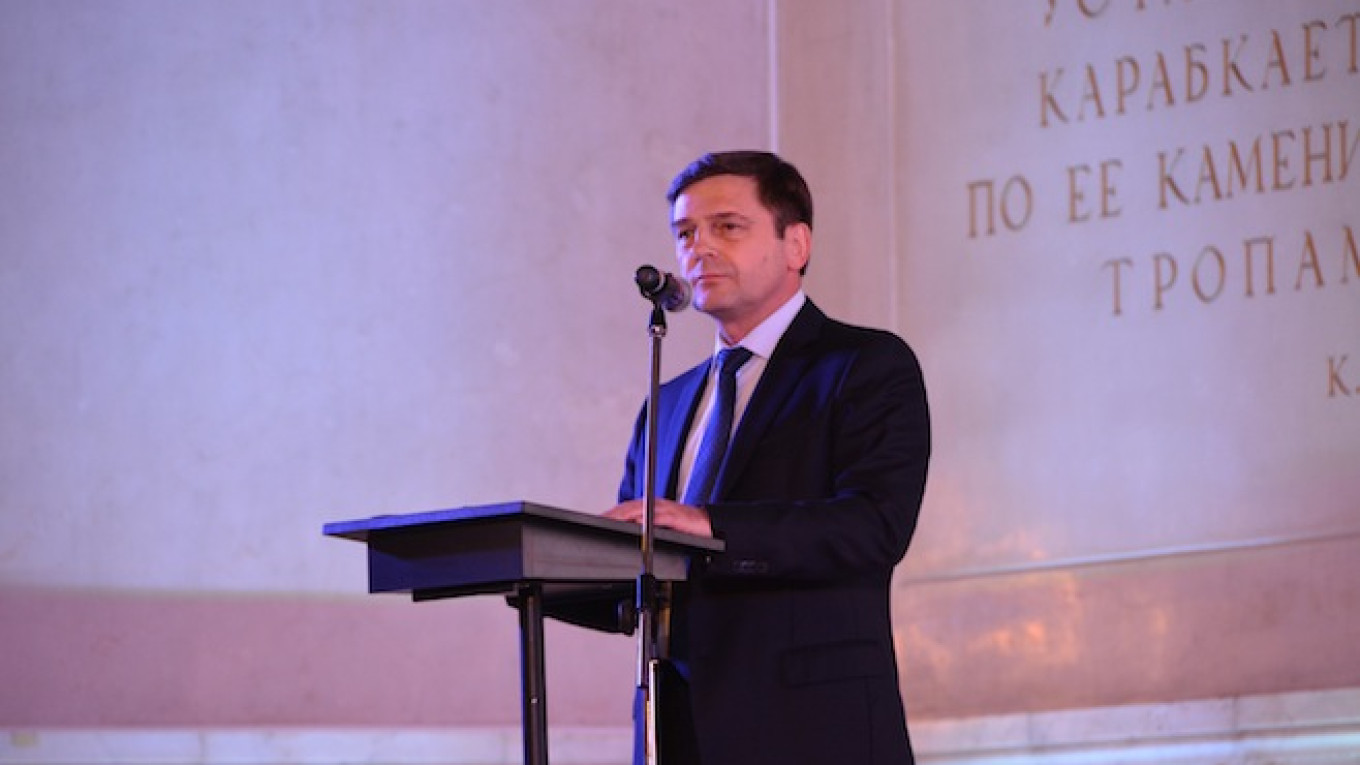The 40th assembly of the largest international conference in space science kicked off at Moscow State University on Monday amid rising tensions between Russia and the West.
The Russia-West punching match over Ukraine has seen an exodus from multilateral forums involving Russia, but attempts to drag the space industry into the fray since Russia's annexation of Crimea in March have had limited effect. Representatives of the U.S.'s space agency, NASA, attended the Moscow conference, albeit in modest numbers, and calls for reprisals against the Russian space industry from Ukrainian delegates were rebuffed.
But the fallout from the geopolitical spat still topped the agenda. At the opening ceremony of the biannual International Committee on Space Research, or COSPAR, Russian Federal Space Agency chief Oleg Ostapenko took the opportunity to reaffirm Russia's commitment to international space cooperation, but made no mention of the agency's involvement in the International Space Station program beyond 2020.
The International Space Station has been the sacred cow of space cooperation since the late 1990s. NASA has proposed to extend beyond its current 2020 expiration date. Roscosmos has yet to officially accept or reject NASA's proposal, which would see the program extended to at least 2024, amid growing tension between Washington in Moscow over violence in eastern Ukraine, which the West says is being fed by the Kremlin.
A Roscosmos deputy told reporters at the French spaceport in Kourou, French Guiana last week that the political rift between Russia and the West was preventing Roscosmos from committing to the proposed ISS extension.
Scientists representing Ukraine and the U.S. were sparse at this year's meeting of the biannual space science conference — considered to be the most prestigious in the field.
Earlier, Lev Zeleny, head of the Space Research Institute at the Russian Academy of Sciences, said that this was due to financial, rather than political issues, Itar-Tass reported.
On the sidelines of the conference, which Russia is hosting for the first time since 1977, when it was hosted in Leningrad, attendees from the U.S. said that NASA's contingent was limited to a few dozen scientists and representatives, who were either presenting research or participating in discussions.
Moreover, few Ukrainians participated. A European scientist said that some of their Ukrainian colleagues lobbied to boycott the conference, but were unsuccessful. The consensus among scientists is that the international space conference — which is seen as an important forum for sharing cutting edge findings and ideas — trumps political considerations.
In practice, both Russia and the West have not balked at putting hurdles in the way of attendees of numerous international forums over the past few months. And although NASA officials were not prohibited outright from attending the conference, funding was scarce for its scientists to attend the conference.
Personal safety concerns also played a factor, one scientist said, and some worried about flying over Ukraine to get to Moscow in the wake of the Malaysia Airlines Flight MH17 tragedy.
But the science goes on.
See also:
A Message from The Moscow Times:
Dear readers,
We are facing unprecedented challenges. Russia's Prosecutor General's Office has designated The Moscow Times as an "undesirable" organization, criminalizing our work and putting our staff at risk of prosecution. This follows our earlier unjust labeling as a "foreign agent."
These actions are direct attempts to silence independent journalism in Russia. The authorities claim our work "discredits the decisions of the Russian leadership." We see things differently: we strive to provide accurate, unbiased reporting on Russia.
We, the journalists of The Moscow Times, refuse to be silenced. But to continue our work, we need your help.
Your support, no matter how small, makes a world of difference. If you can, please support us monthly starting from just $2. It's quick to set up, and every contribution makes a significant impact.
By supporting The Moscow Times, you're defending open, independent journalism in the face of repression. Thank you for standing with us.
Remind me later.


